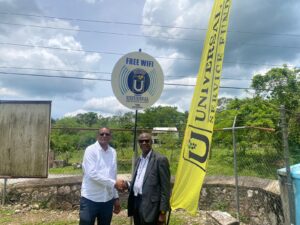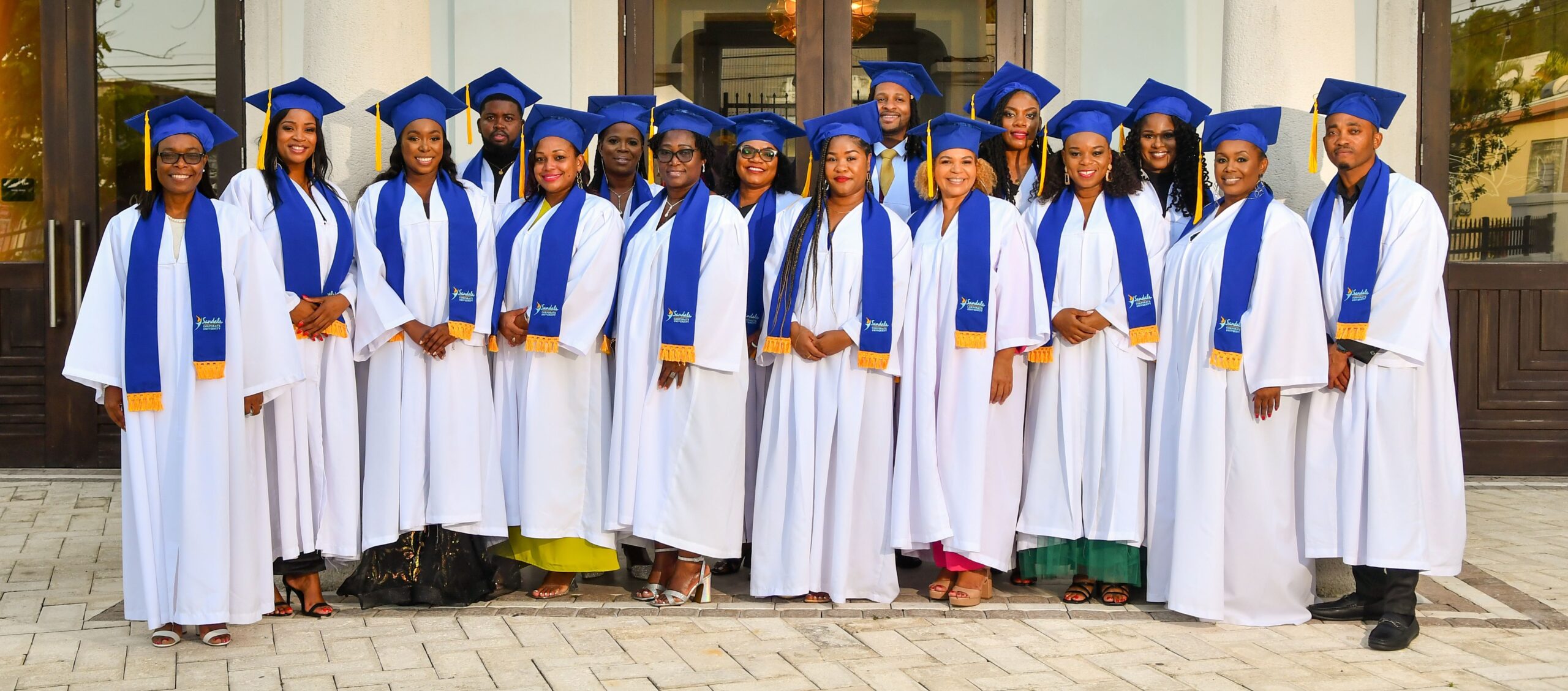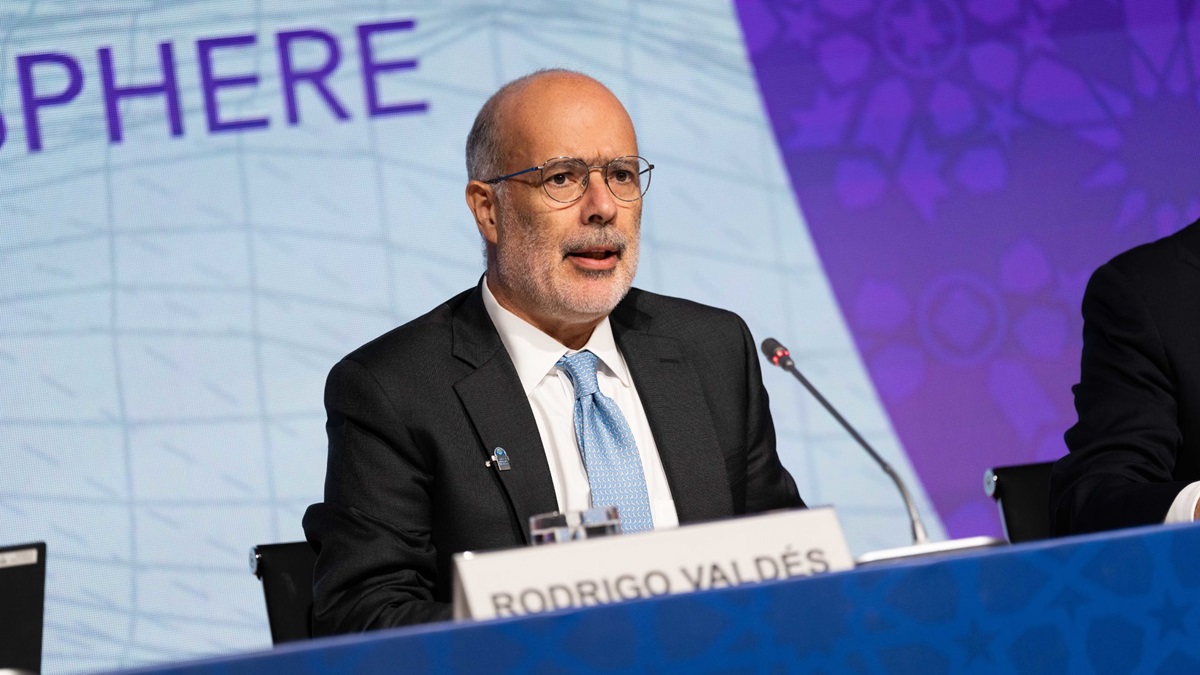~ Caribbean students graduate with Diploma in Hospitality Leadership ~
May 2, 2024, Montego Bay, Jamaica – In keeping with Sandals Resorts’ mandate to train and develop 400 managers in the next three years, The Sandals Corporate University (SCU) has added another sixteen managers to its growing list of graduates in the Diploma in Hospitality Leadership Programme.

Melissa Migliavacca, valedictorian
The leadership initiative, a partnership with the SCU, Florida International University(FIU) and Accelerating Leaders hosted its second graduation ceremony, at Sandals Barbados which was attended by members of the SCU team, Sandals and Beaches Executives, representatives of FIU and Accelerating Leaders and well-wishers of the graduates.
In his greeting, Dr. Michael Cheng, dean of the Chaplin School of Hospitality and Tourism expressed his joy in celebrating with the team members. He shared, “all of you embody the spirit of service, innovation and community that is embedded into the DNA of Sandals Resorts International. You’ve demonstrated that true leadership is about more than just guiding others. It’s about inspiring them, lifting them up, and striving for excellence in every endeavour. As you move forward from today, remember that the skills and knowledge you’ve acquired are tools not just for personal success, but for making a difference in the world. The hospitality industry, with its endless challenges and opportunities, awaits your contribution. You are the future of this industry, and we have every confidence that you will lead with integrity, creativity, and compassion.”
Managing Director for Sandals Resorts International, Stephen Blackburne, in his keynote address expressed how impressed he was with the graduates for taking a very calculated approach to their future with the organization. He said, “waiting to be asked is a passive approach. Instead continue to be intentional and proactive in shaping your future and making a meaningful impact wherever you go. I urge you to embrace this moment with pride and excitement. You are not just graduates, you are ambassadors of excellence, emissaries of change and architects of the future.”
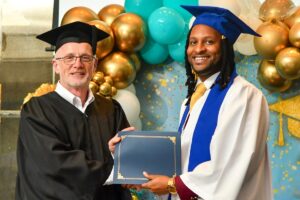
Je’mel Francis, club sandals supervisor for Sandals Grande Antigua
Students for cohort B were recruited from Sandals Resorts across St. Lucia, Antigua, Bahamas, Turks and Caicos, Barbados and Grenada. Cohorts C and D will commence in April and May respectively, and the SCU anticipates that by the end of 2024, five cohorts will earn their diplomas.
To close out the evening on an inspiring note, Sandals Grenada’s Spa Manager, and valedictorian for Cohort B Melissa Migliavacca, took the time in her address to motivate her colleagues as they look towards the future. She said passionately, “it took discipline, dedication and focus as well as effective time management for us to follow through. There were times that we stumbled upon obstacles but giving up was not an option. Lisa Nichols says, that in this life we can choose to be a victim or a victor, the choice is always ours. I’m so glad we’re all standing victorious today because we made the choice to be brave and sign up for this programme and we saw it through to the end.” She concluded by encouraging her colleagues to pay it forward when they return to their operations by helping train team members and cultivating a standard of excellence.
The Diploma in Hospitality Leadership Programme is a six-month long interactive course leveraging workshops, discussion groups, case studies and industry best-practices. Entry and mid-level managers are challenged to apply new knowledge, gain advanced skills and create positive behaviours as they prepare for the future and continuous achievement of excellence in the industry.
~END~
Captions:
Header – Proud graduates of Cohort B of the Diploma in Hospitality Leadership come together for their group shot ahead of their graduation ceremony. The cohort consisted of managers from Sandals Resorts to include Grenada, Barbados, Bahamas, Turks and Caicos and St. Lucia.
1st insert – Melissa Migliavacca, valedictorian, gave a riveting address on behalf of her colleagues. She encouraged them to return to their resorts and impart what they have learnt to empower their various teams.
2nd insert – Je’mel Francis, club sandals supervisor for Sandals Grande Antigua, paused for a photo with Stephen Blackburne, managing director, SRI as he collected his diploma certificate. The Diploma in Hospitality Leadership Programme is offered by SCU in partnership with Accelerating Leaders and the Florida International University.
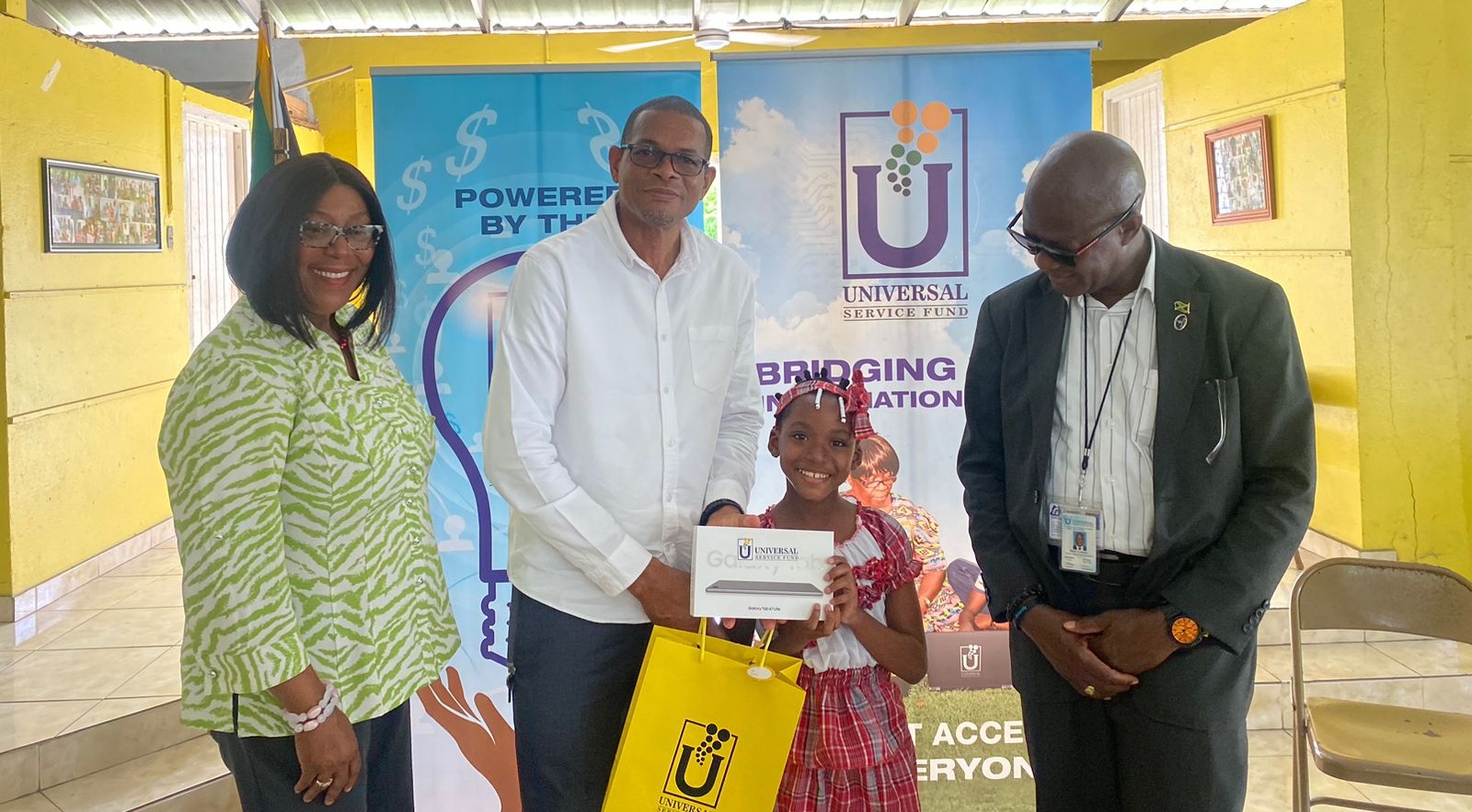
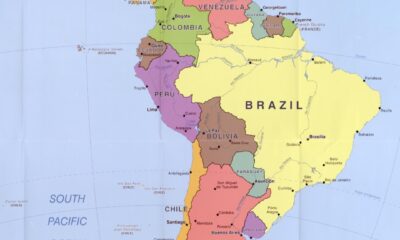
 Latin America and Caribbean1 week ago
Latin America and Caribbean1 week ago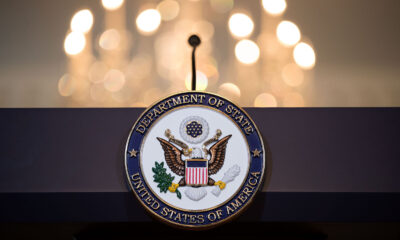
 Crime1 week ago
Crime1 week ago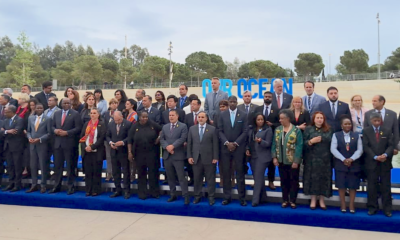
 Bahamas News1 week ago
Bahamas News1 week ago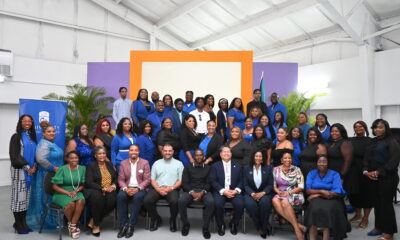
 Bahamas News6 days ago
Bahamas News6 days ago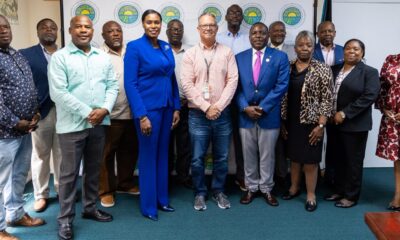
 Bahamas News7 days ago
Bahamas News7 days ago
 Caribbean News1 week ago
Caribbean News1 week ago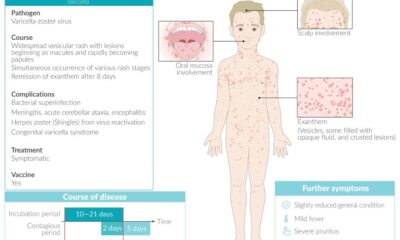
 Health6 days ago
Health6 days ago
